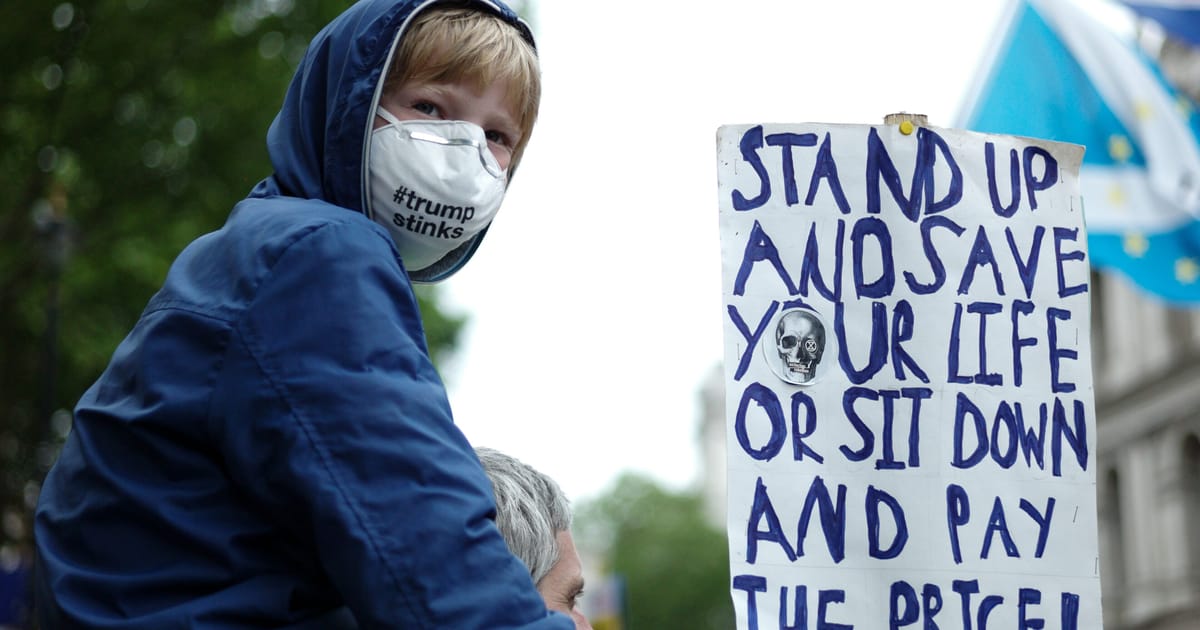

In a world characterized by dynamic events and mixed sentiments, recent developments across the globe have captured attention, illustrating the complexity of trust, diplomacy, and personal achievements. Herein, we explore the intricate narratives that unfolded this week, ranging from political discourse to personal milestones that celebrate human spirit.
In the United Kingdom, recent public opinion surveys have revealed a significant shift in sentiment towards the United States. Trust in America’s global responsibility has seen a notable decline, dropping 15 percentage points over the past year, now standing at just 38 percent. This change highlights the evolving dynamics of international relations and the importance of perception in diplomatic contexts.
Meanwhile, in Brazil, the political landscape has been turbulent. Former President Jair Bolsonaro faced backlash in response to an ultimatum on tariffs issued by U.S. President Donald Trump. The move appears to have backfired, igniting widespread protests and inadvertently strengthening Bolsonaro’s political adversary, Luiz Inácio Lula da Silva. As demonstrators spoke out in São Paulo, the situation underscored the intricate nature of international diplomacy and its potential ramifications on domestic politics.
Turning to China, a restaurant in Taiyuan has attracted criticism for offering lion cub cuddles as part of its unique dining experience. While some diners find the opportunity alluring, animal welfare organizations have condemned the practice, labeling it an exploitation of wildlife for personal amusement. The debate raises important questions about ethical standards and the treatment of animals in commercial settings.
In the academic sphere, Oxford University Press announced it will cease publishing the journal Forensic Sciences Research, sponsored by China’s Ministry of Justice. This decision follows concerns about the ethical standards of some published papers, particularly in regard to DNA collection. The move reflects growing scrutiny over academic integrity and the necessity of maintaining robust ethical guidelines in scientific research.
Meanwhile, in Belgium, the Tomorrowland music festival faced an unexpected challenge as a fire destroyed its main stage just before the event’s commencement. Despite the setback, organizers remained steadfast, reassuring eager attendees that the festival would proceed as planned over the next two weekends. This resilience embodies the spirit of community and the universal love for music, illustrating how challenges can be met with determination and positivity.
In a somber note, the world bids farewell to Fauja Singh, the renowned centenarian marathon runner, who passed away at the age of 114 due to a car accident in India. Singh, celebrated for his fortitude and endurance, leaves behind a legacy of inspiration, demonstrating the incredible feats the human body and spirit can achieve. His passing touches many, serving as a poignant reminder of life’s fragility and the lasting impact of personal achievements.
Lastly, former President Donald Trump has once again captured headlines by calling for an FBI investigation into what he describes as “the Jeffrey Epstein hoax.” This claim was part of a broader discourse on political dynamics, underscoring the divisive and often contentious nature of public political narratives. In the backdrop of these unfolding events, the Democratic National Committee faces its own challenges, as party leaders navigate internal divides with the aim of rebuilding trust and engaging effectively with constituents.
As we reflect on these stories, it is essential to acknowledge the multifaceted nature of global events and the enduring human narratives that transcend geographic boundaries. From political maneuvers to personal triumphs, each story contributes to the rich tapestry of our shared human journey. Through calm and considered engagement, we find opportunities for growth, understanding, and resilience.
Source: {link}
